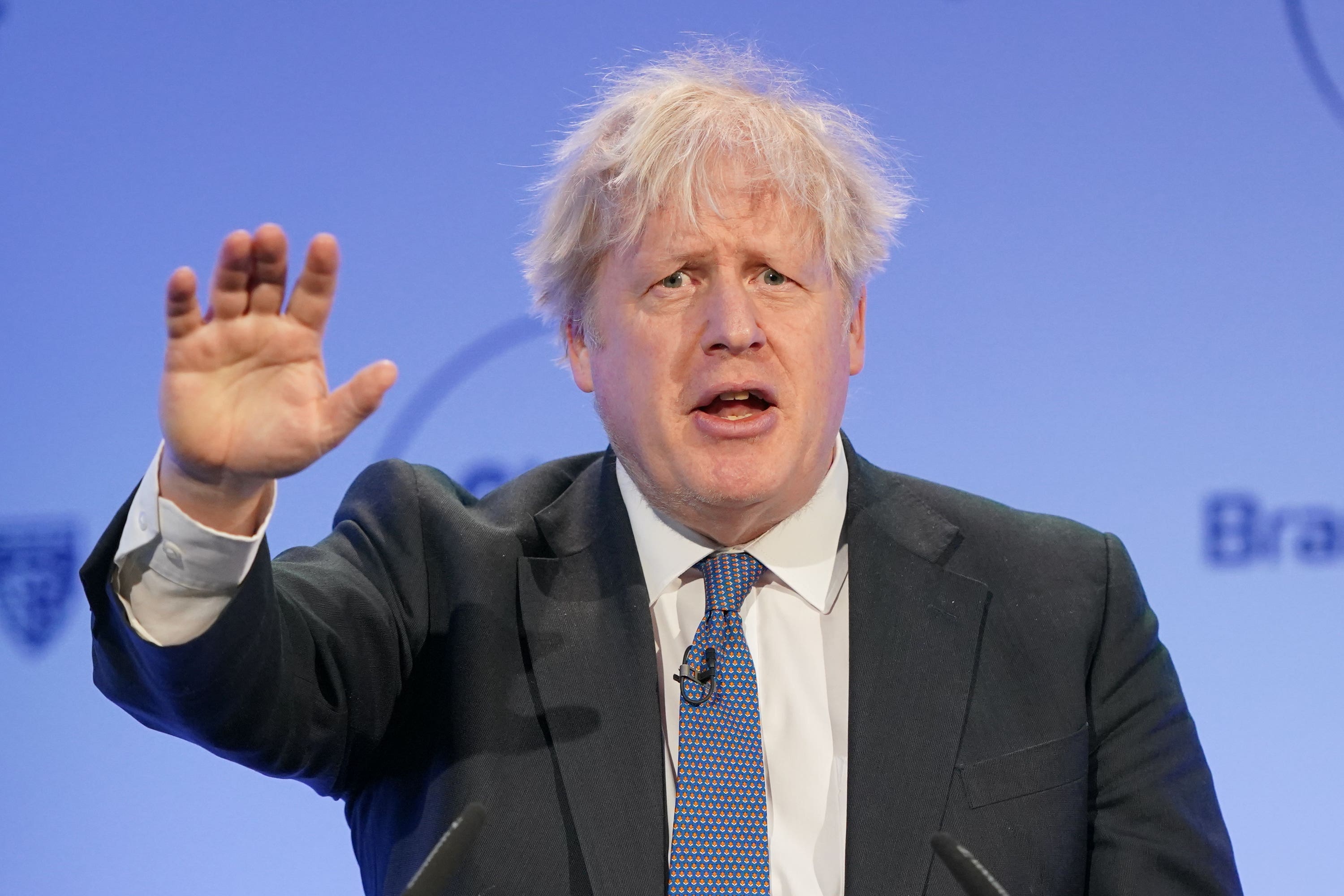Spluttering Boris is the one who’s ‘nuts’ if he thinks the public are with him on the smoking ban
It is ‘just mad’ that the ‘party of Winston Churchill’ wants to ban cigars and smoking, chunters the former prime minister. But if he thinks anyone other than Tory MPs will agree with him, he’s deluded, writes John Rentoul


The prime minister is already in trouble with his Tobacco and Vapes Bill, introduced in parliament last month. Around “80 to 100” Conservative MPs are unhappy with the plan for a gradual smoking ban.
It is a rule of thumb for Commons rebellions that only about a quarter of that number might eventually vote against the government, but if another quarter abstain, that would mean that Rishi Sunak would have to rely on Labour votes to get the law through.
Naturally, therefore, Boris Johnson has come to the prime minister’s aid. He told a conference in Canada that he hoped that the Conservatives could “turn things around in the next few months”. His contribution to this effort was to point out some of the “absolutely nuts” things “being done in the name of conservatism”.
He said it was “just mad” for the “party of Winston Churchill” to want to ban cigars. No doubt he would say that he was just trying to help, by identifying problems with the plan, so that Sunak could ditch it and bask in the popularity accorded to a leader who has liberated his people from oppressive laws. There is only one thing wrong with that, which is that the British public strongly supports the policy.
It is among Tory MPs that the policy is unpopular – they oppose it on what used to be called liberal principle, now rebranded “libertarianism”, although some of that opposition could also stem from the principle that Johnson, Liz Truss and their supporters want to make life difficult for the prime minister.
So Tory MPs are keen to point out the practical problems of enforcing an unusual policy, in which the age at which people will be allowed to buy cigarettes will rise by one year every year. John Hayes, the “libertarian” keeper of the “common sense” flame as chair of the Common Sense Group of Tory MPs, says it is not “workable” that a person aged 28 would be allowed to buy tobacco, while someone at 27 would not.
Yes, it would produce unfamiliar situations, and require retailers to demand proof of age of people in their 30s, 40s and 50s, which doesn’t happen now, although younger and older people are used to it.
Tory MPs might be better advised to stick to the liberal argument of principle: why restrict personal choice in a society that is slowly giving up tobacco anyway?
Indeed, it is a puzzle that Sunak decided that this would be one of the few legacies of what is likely to be a two-year premiership. When he announced it last year, I wondered if it had been dreamt up just to give him something to say when he gave evidence to the Covid inquiry. In order to offset the impression among some voters that he was against lockdowns and therefore not interested in public health, this allowed him to pander to the authoritarian health-policy instincts of the majority.
But that may be reading too much into a rationalist politician who takes decisions without much thought for the second- or third-order political implications. Thus he asked questions about HS2 when the request for the next tranche of funding reached his desk, didn’t like the answers, asked more questions and cancelled the rest of the project. He seemed oblivious to the short-term messaging problems of making the decision as the Tories prepared for their annual conference in Manchester, the city most likely to think itself adversely affected by it. Nor did he seem to give much weight to the longer-term implication that Britain is a “no can do” country.
So it may be that Rishi the Rationalist simply looked at the information on avoidable deaths and decided that banning smoking was the logical thing to do – and only then thought about how to do it. On the first part of that, again the rational brain was engaged and he thought that the gradual New Zealand approach – now abandoned – of raising the smoking age every year would go with the grain of social change.
On the second part, however, of getting legislation through parliament, he did not seem to realise that there would be a big contingent of Conservative MPs who wouldn’t like it. He seems to have assumed that the imminence of a general election would instil greater discipline in his fractious troops.
He is learning the hard way that the reach of the Tory whips’ office does not extend as far as Ottawa, and that Tory MPs, who return to Westminster next week, have forgotten how to do unity.
Tory libertarians should be careful what they wish for. I suspect that Sunak will go ahead with the legislation anyway, even if he has to rely on Labour votes. But if they do succeed in frightening the prime minister into abandoning the bill, they should realise that a Labour government would probably have the next move.
Opinion polls suggest that more than half the British people support a total ban on smoking – so what would they rather have: a gradual ban or an immediate one?
Join our commenting forum
Join thought-provoking conversations, follow other Independent readers and see their replies
Comments
Bookmark popover
Removed from bookmarks